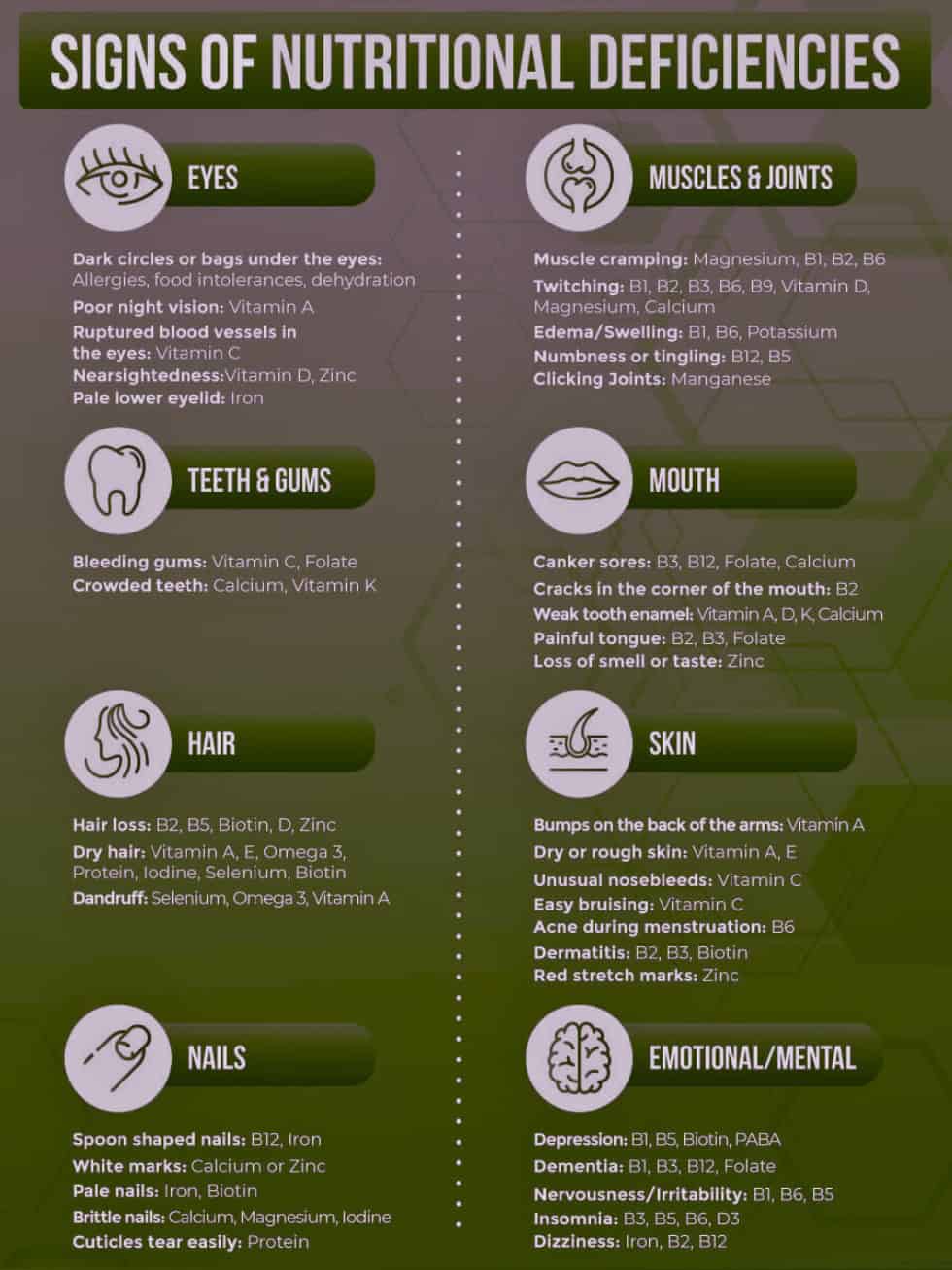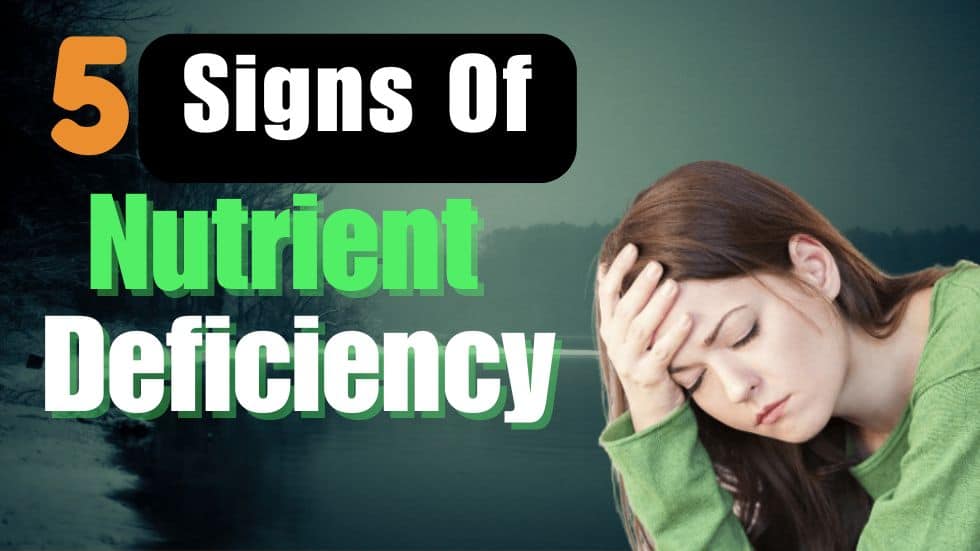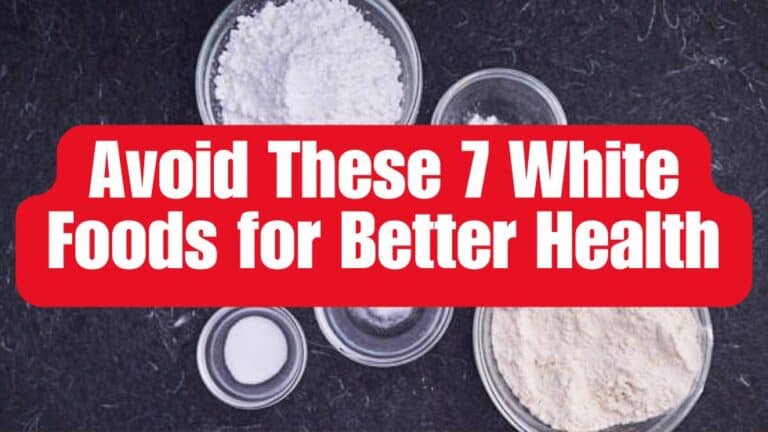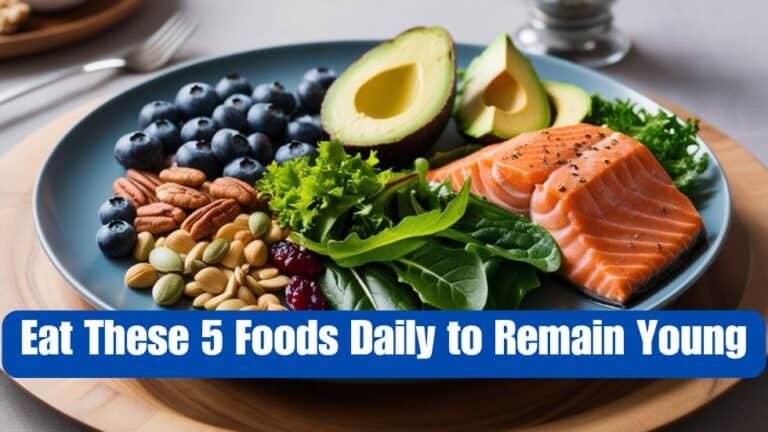Our bodies are masterful communicators, constantly sending signals about our health and well-being. But sometimes, these messages can be subtle or downright perplexing. When it comes to nutrition, the signs of deficiency aren’t always as straightforward as we might think.
Imagine your body as a finely-tuned machine. Just like a car needs the right fuel to run smoothly, our bodies require a balanced mix of nutrients to function at their best. But what happens when we’re running low on these essential building blocks?
In this article, we’ll explore five surprising signs that your body might be lacking in vital nutrients. These aren’t your typical textbook symptoms – they’re the kind of quirky signals that might make you scratch your head and wonder, “Could this really be related to my diet?”
1. Twitching in the eyelids: When Your Eyelids Have a Mind of Their Own
Ever experienced that annoying little twitch in your eyelid that just won’t quit? You know, the one that makes you wonder if you’re secretly winking at everyone? Well, hold onto your hats, because this pesky little flutter might be more than just a random muscle spasm – it could be your body’s way of crying out for magnesium!
Dr. Saurabh Sethi, a renowned Gastroenterologist and Internal Medicine specialist from Harvard, drops this eye-opening bombshell: “It indicates magnesium deficiency which is critical for transmitting nerve impulses.” But that’s not all, folks. This mighty mineral is a jack-of-all-trades in your body, playing a crucial role in mood regulation, sleep quality, exercise performance, and even keeping your blood sugar in check.
Picture magnesium as the behind-the-scenes director of your body’s intricate nervous system. When it’s running low, things start to go a bit haywire. It’s not just your eyelids that might rebel – you could also find yourself dealing with muscle cramps that make you dance like you’ve got ants in your pants, tension in your neck and shoulders that rivals a tightly wound spring, and even cardiac arrhythmias that throw your heart’s rhythm off-beat.
But fear not, my twitchy-eyed friends! There’s hope on the horizon, and it comes in the form of delicious, magnesium-rich foods. Time to raid your pantry and load up on:
- Crunchy peanuts
- Vibrant spinach leaves
- Sunflower seeds (perfect for channeling your inner squirrel)
- Mighty millet
- Versatile rice
- Hearty beans
- Comforting oatmeal
Still feeling the twitch? Don’t be shy about chatting with your healthcare provider. They might suggest a magnesium supplement – typically around 250-400 mg of magnesium oxide daily – to help kick those muscle spasms to the curb.
Remember, those tiny twitches could be your body’s SOS signal. So next time your eyelid starts doing the cha-cha, take a moment to consider: Is it time to show your magnesium levels some love? 🌟
Discover More: ➜ Want Rapid Weight Loss? These Science-Backed Tips Will Shock You!
2. Clicking sounds at the joints: Your Body’s Nutrient Alarm
Ever feel like your joints are auditioning for a percussion band? Those clicks, pops, and snaps might be more than just the soundtrack of getting older – they could be your body’s way of sending out an SOS for some vital nutrients!
Dr. Sethi drops a bombshell: those creaky joints might be crying out for vitamin D. This sunshine vitamin isn’t just for strong bones; it’s the unsung hero of flexibility too. When you’re running low, your bones and joints throw a bit of a tantrum, getting weak and inflamed. The result? A personal symphony of cracks and pops that would make Rice Krispies jealous.
But wait, there’s more! (Cue the infomercial voice.) It’s not just vitamin D playing hide and seek in your body. Calcium might be joining the disappearing act too. This mineral is like the construction crew of your skeleton, constantly repairing and rebuilding. When it’s in short supply, your joints start to sound like a house settling on a windy night.
| Nutrient | Role in Joint Health | Deficiency Symptoms |
|---|---|---|
| Vitamin D | Bone strength, flexibility | Weak joints, inflammation |
| Calcium | Joint repair, bone density | Cracking sounds, joint pain |
So, what’s a creaky-jointed person to do? Dr. Sethi’s got your back (and knees, and elbows…). He recommends a trio of supplements to get you back in tune:
- Vitamin D: The sunshine supplement
- Calcium: Your bone’s best friend
- Omega-3 fatty acids: The anti-inflammation superstar
But before you go popping pills like they’re Tic Tacs, remember: always chat with your healthcare provider first. They can help you find the right dosage and make sure you’re not overdoing it.
Remember, those clicks and pops aren’t just annoying – they’re your body’s way of saying, “Hey, I could use a little nutrient love over here!” So next time your knees sound like a glow stick at a rave, take a moment to consider: Is it time to give your vitamin D and calcium levels a boost? 🌟
Top Pick for You: ➜ Struggling with Hypertension? These Natural Solutions Will Amaze You!
3. Premature greying of hair: The Surprising Nutrient Connection
Hold onto your hair dye, folks! If you’re finding more salt than pepper in your mane before your time, you’re not alone. A whopping 50% of youngsters these days are playing an unwanted game of “Find the Grey Hair.” But before you blame it all on stress or genetics, let’s talk nutrients!
Dr. Sethi says: “This could indicate a deficiency of vitamin B12, which is crucial for RBC production and oxygen transport at the hair follicles.” In other words, B12 is like the VIP pass for oxygen to get to your hair’s roots. No B12? Your hair might decide to go grey in protest!
But wait, there’s more! (Yes, we’re channeling our inner infomercial again.) Dr. Sethi reveals another plot twist: “Greying of hair could also be due to copper deficiency which is responsible for melanin production imparting colour to your hair.” So, copper is basically your hair’s personal colorist!
Now, before you start raiding the vitamin aisle, let’s talk food. Here’s a handy-dandy table of nutrient-rich foods to keep your locks luscious and colorful:
| Nutrient | Food Sources |
|---|---|
| B12 | Meat, fish, eggs, legumes, dark leafy greens |
| Copper | Oysters, mushrooms, cashews, sunflower seeds, potatoes |
For all you vegans out there, don’t despair! B12 supplements are your friend. Just remember to chat with your doc before diving into the supplement pool.
Now, let’s address the elephant in the room – or should we say, the silver fox in the mirror? Going grey isn’t the end of the world. In fact, some folks rock it like a boss! But if you’re not ready for the salt-and-pepper look just yet, giving these nutrients some love might help you keep your natural color longer.
Remember, your hair is like a mood ring for your body’s nutrient levels. So next time you spot a grey intruder, don’t just reach for the tweezers. Take a moment to consider: Is it time to beef up your B12 and copper intake? Your luscious locks will thank you! 🌟
Recommended for You: ➜ Finally Pain-Free: Discover These Life-Changing Back Relief Secrets!
4. Easy bruising: When Your Skin Tells a Colorful Nutrient Story
🎨 Ever feel like you’re turning into a human canvas, sporting mysterious bruises that appear out of nowhere? Or maybe your mouth feels like it’s staging its own mini-rebellion with unexplained sores? Well, hold onto your band-aids, folks, because these colorful symptoms might be more than just clumsy encounters with furniture – they could be your body’s artful way of screaming for vitamins!
Dr. Sethi drops this bruising truth bomb: “This could mean you are running short of vitamin C which is responsible for collagen formation. It could also mean a deficiency of vitamin K1 which helps in blood clotting.” In other words, your body’s missing its star players in the ‘keeping-you-in-one-piece’ game!
Let’s break it down:
- Vitamin C: The Collagen Quarterback
✔️ Think of collagen as the scaffolding that keeps your skin strong and resilient. Without enough vitamin C, this scaffolding gets wobbly, making you more prone to bruising. It’s like trying to build a house with wet noodles instead of steel beams!
- Vitamin K1: The Clotting MVP
✔️ This vitamin is your body’s emergency response team. When you get a cut or bump, K1 rushes in to help your blood clot. Without it, you’re like a leaky faucet – bruising at the slightest touch!
🥑 But fear not, my easily-bruised buddies! Nature’s got your back with a delicious lineup of vitamin-packed foods. Here’s a tasty table to guide your next grocery run:
| Vitamin | Food Sources |
|---|---|
| C | Papaya, citrus fruits, strawberries |
| K1 | Bell peppers, mustard greens |
🍊 The best part? Many of these foods are two-for-one deals, packing both vitamins in one delicious package. It’s like hitting the nutrient jackpot!
🥊 So, next time you find yourself looking like you’ve gone ten rounds with a boxing champ (when all you did was bump into the coffee table), take a moment. Instead of reaching for the concealer, maybe reach for a juicy orange or a crisp bell pepper. Your body – and your unblemished skin – will thank you!
💡 Remember, those bruises aren’t just unsightly accessories – they’re your body’s way of saying, “Hey, I could use a vitamin boost over here!” So, are you ready to paint a healthier picture with your diet?
Popular Reads: ➜ Amazing Natural Remedies That Make Arthritis Pain Disappear!
5. Brittle Nails: When Your Fingertips Tell a Nutritional Tale
💅 Ever look down at your nails and think they’d make better potato chips than fingernail accessories? If your nails are pulling a Humpty Dumpty act—breaking, chipping, and generally falling apart—it might be time to put on your detective hat and investigate your diet!
Dr. Sethi spills the beans (or should we say, the nail polish?) on his social media: “This indicates a deficiency of protein and iron in your diet.” But wait, there’s more! Studies have thrown another player into the mix—biotin, aka vitamin B7, the unsung hero of nail health.
Let’s break it down like a brittle nail:
- Protein: The Building Blocks
✔️ Think of protein as the bricks in your nail’s wall. No protein? Your nails turn into the Three Little Pigs’ straw house—one huff and puff, and they’re gone!
- Iron: The Strength Supplier
✔️ Iron is like the reinforcing steel in your nail’s concrete. Without it, your nails become as fragile as a house of cards in a windstorm.
- Biotin (Vitamin B7): The Energy Converter
✔️ This vitamin is the power plant of your body, turning food into energy. For your nails, it’s the difference between being bendy straws or steel beams.
⚠️ Now, before you start popping supplements like they’re M&Ms, remember Dr. Sethi’s golden rule: always consult with your doctor first. They can help you figure out the right amount for your body—typically around 30 micrograms for adults with brittle nails.
🍽️ But here’s the fun part—you can start strengthening your nails right from your kitchen! Check out this nail-friendly food lineup:
| Nutrient | Food Sources |
|---|---|
| Protein | Eggs, nuts, seeds |
| Iron | Spinach, broccoli |
| Biotin | Eggs, sweet potatoes |
🥚 Notice how eggs made the list twice? They’re like the Swiss Army knife of nail health!
🛒 So, next time you’re at the grocery store, think of it as a nail salon. Load up on these foods, and you might just say goodbye to those chip-prone nails. Who needs a manicure when you’ve got a well-stocked fridge?
Must-Read Article: ➜ Nature’s Answer to Type 2 Diabetes: Life-Changing Remedies Revealed!
💡 Remember, those brittle nails aren’t just a cosmetic nuisance—they’re your body’s way of waving a little white flag (or in this case, a white-tipped flag) saying, “Help! I need nutrients!” So, are you ready to give your nails the nutritional love they deserve? Your future chip-free, strong-as-nails self will thank you!

The Bottomline
🗣️ Your body’s a chatterbox, constantly dropping hints about its nutritional needs. Let’s recap our nutrient detective work:
- ✔️ Twitchy eyelids? Magnesium might be MIA.
- ✔️ Creaky joints? Vitamin D and calcium could be playing hide-and-seek.
- ✔️ Premature grey hairs? B12 and copper might need a boost.
- ✔️ Bruising easily? Vitamins C and K1 could be running low.
Remember, these quirky symptoms are your body’s SOS signals. Don’t ignore them! A balanced diet and, if needed, targeted supplements can help you stay in tune with your nutritional needs. Always consult a healthcare professional before making significant dietary changes or starting supplements.
👂 Your body’s whispering – are you listening?
You Might Also Like: ➜ Thyroid Transformation: Natural Solutions That Actually Work!
Check This Out: ➜ Breaking Free from Depression: Life-Changing Natural Solutions!


